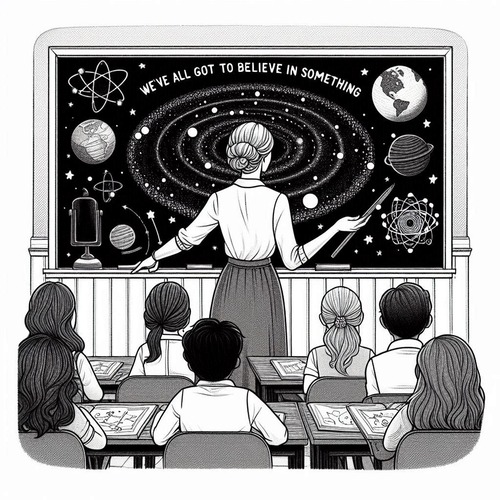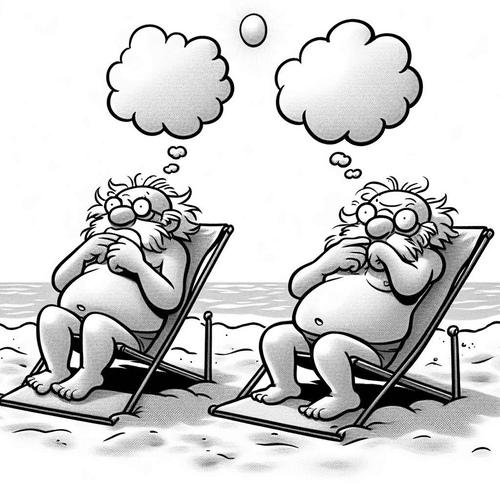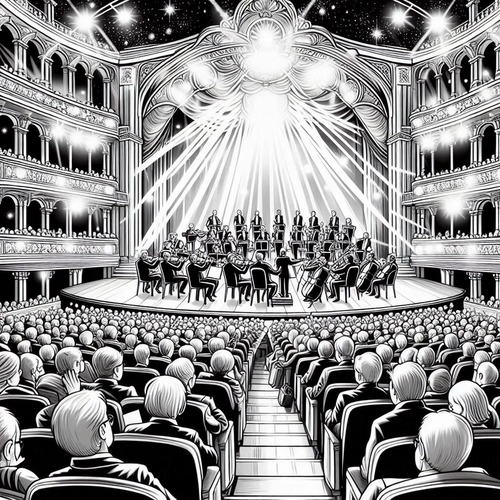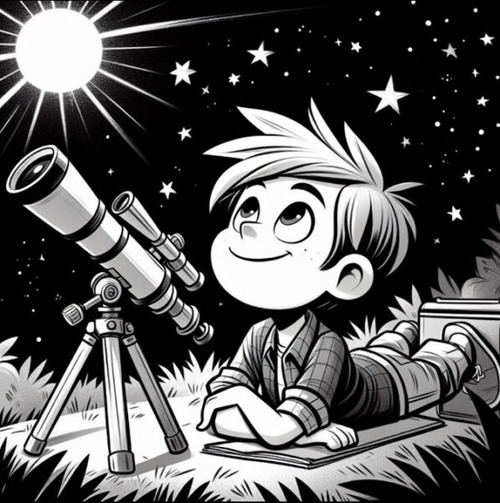Origin of The Universe: Gaping Holes in Naturalist Explanations
Despite the remarkable progress made by cosmologists and physicists in recent decades, even our most advanced scientific theories still cannot definitively account for the origin of the universe. While theories like the Big Bang, inflation, the multiverse, and others successfully describe and model the evolution of the cosmos from certain initial conditions, they still run into a brick wall when it comes to explaining the first cause that started it all.
Join us as we explore why believing in each of these theories on the origin of the universe requires as much, if not more, faith than believing in Creation…
1. Big Bang Theory
The Naturalist’s Explanation: The universe began 13.8 billion years ago from a hot, dense singularity that expanded and cooled, forming galaxies, stars, and planets.
Counterpoint:
- Causality: The Big Bang theory describes the expansion of the universe but does not explain what caused the initial singularity to exist or why it expanded. The principle of causality suggests that every effect must have a cause, which points to the need for an external cause beyond the physical universe.
- Fine-Tuning: The precise conditions necessary for the Big Bang and the subsequent formation of life-supporting structures suggest fine-tuning. Theistic perspectives argue that such fine-tuning implies the existence of an intelligent designer rather than random chance.
2. Quantum Fluctuations
The Naturalist’s Explanation: The universe emerged from quantum fluctuations in a vacuum, with particles spontaneously appearing and disappearing.
Counterpoint:
- Origin of the Vacuum: Quantum fluctuations require a pre-existing vacuum state. The question remains: where did this vacuum come from? A vacuum is not “nothing”; it has properties and laws governing it, suggesting the need for an origin outside the naturalistic framework.
- Lawgiver: The laws of quantum mechanics themselves require an explanation. A theistic perspective posits that these laws originate from a transcendent lawgiver.
3. Inflation Theory
The Naturalist’s Explanation: After the Big Bang, the universe underwent rapid exponential expansion, smoothing out irregularities and leading to the uniform structure we observe today.
Counterpoint:
- Initial Conditions: Inflation theory explains the uniformity of the universe but does not address the initial conditions that triggered inflation. The fine-tuning required for inflation to occur points to a designer who set these conditions precisely.
- The Mechanism of Inflation: The exact mechanism driving inflation is still speculative. A theistic view argues that the precise nature of this mechanism indicates intentional creation rather than a random process.
4. Eternal Inflation
The Naturalist’s Explanation: Inflation is an ongoing process, creating multiple “bubble universes” within a larger multiverse. Our universe is just one such bubble.
Counterpoint:
- Testability and Evidence: Eternal inflation and the multiverse theory are inherently untestable and speculative. Without empirical evidence, they remain philosophical rather than scientific explanations.
- Occam’s Razor: The principle of Occam’s Razor suggests that the simplest explanation is preferable. A multiverse hypothesis adds complexity without direct evidence, whereas theism offers a straightforward explanation for the origin of the universe.
5. Cyclic Models
The Naturalist’s Explanation: The universe undergoes infinite cycles of expansion and contraction, avoiding a singular beginning.
Counterpoint:
- Entropy and Thermodynamics: The second law of thermodynamics states that entropy (disorder) in a closed system always increases. Cyclic models struggle to explain how each cycle resets entropy, suggesting the need for an external intervention to “reset” the universe.
- Historical Evidence: There is no empirical evidence of previous cycles. The observable universe appears to have a definitive beginning, consistent with the idea of a created order.
6. Multiverse Theories
The Naturalist’s Explanation: Multiple universes exist, each with different physical laws and constants. Our universe’s conditions are suitable for life, which is why we observe them.
Counterpoint:
- Lack of Evidence: Like eternal inflation, the multiverse theory lacks empirical support. It remains a speculative idea without observational confirmation.
- Fine-Tuning: The multiverse does not eliminate the need for fine-tuning, or of a first cause. Instead, it multiplies the problem by requiring fine-tuning of the multiverse-generating mechanism itself.
7. String Theory and M-Theory
The Naturalist’s Explanation: Fundamental particles are one-dimensional “strings,” and our universe may be a 3-dimensional “brane” in a higher-dimensional space. Interactions between branes could explain our universe’s origin.
Counterpoint:
- Speculative Nature: String theory and M-theory remain largely theoretical with little empirical evidence. Their complexity and lack of testable predictions make them less compelling than observable phenomena.
- Ultimate Origin: These theories push the question of origins back further without addressing the ultimate cause. A theistic perspective posits a necessary being as the ultimate cause of all physical reality.
8. Quantum Gravity Theories
The Naturalist’s Explanation: Theories like loop quantum gravity attempt to reconcile general relativity with quantum mechanics, suggesting the universe could have originated from a previous contracting phase.
Counterpoint:
- Empirical Challenges: Quantum gravity theories are still in early development stages and lack experimental verification. They provide mathematical models but not concrete evidence of the universe’s origin.
- Cosmological Argument: The cosmological argument posits that everything that begins to exist has a cause. The universe, having begun to exist, requires a cause beyond itself. Theism argues that this cause is a transcendent, necessary being—God.
Conclusion
The naturalist offers several models for the origin of the universe, but each has significant gaps and speculative elements. Positing a necessary, intelligent Creator as the ultimate source of the universe, on the other hand, not only aligns with the principle of causality but also accounts for the fine-tuning, laws of nature, and existence of moral and rational beings. Embracing the theistic explanation offers a comprehensive understanding of the universe’s origin, purpose, and ultimate meaning. Creationism thus makes far better sense than naturalism when we examine all the data.
Theism provides a far more coherent and compelling alternative, positing a necessary, intelligent Creator as the ultimate source of the universe. This perspective not only aligns with the principle of causality but also accounts for the fine-tuning, laws of nature, and existence of moral and rational beings. Embracing the theistic explanation offers a comprehensive understanding of the universe’s origin, purpose, and ultimate meaning.
Related Reads:
- The Cambrian Explosion: How is it a Challenge for the Evolutionist?
- Conspicuous Gaps in the Evolution Narrative
- Defending Creationism: Responding to Evolutionist Challenges
- Exploring the Scientific Case for Creation
- Science Reinforces, not Buries, Faith in God
Editor's Pick

Why Do People Hate the Doctrine of Election?
…WHEN THEY REALLY SHOULDN’T Few Bible doctrines provoke stronger reactions than election. The idea that God chose some for salvation [...]

The Doctrine of Providence: Does God Really Govern All Things?
You’re sitting in the doctor’s office when the diagnosis lands like a thunderclap. Your mind races: Why this? Why now? [...]

No Decay, No Defeat: What It Means That Christ’s Body Saw No Corruption
On the Day of Pentecost, Peter stood before thousands and made a startling claim: David's body decayed in the tomb, [...]
SUPPORT US:
Feel the Holy Spirit's gentle nudge to partner with us?
Donate Online:
Account Name: TRUTHS TO DIE FOR FOUNDATION
Account Number: 10243565459
Bank IFSC: IDFB0043391
Bank Name: IDFC FIRST BANK






